- Home
- Jack London
Northland Stories Page 11
Northland Stories Read online
Page 11
The sleds came to a halt where the trail crossed the mouth of Stuart River. An unbroken sea of frost, its wide expanse stretched away into the unknown east. The snowshoes were withdrawn from the lashings of the sleds. Axel Gunderson shook hands and stepped to the fore, his great webbed shoes sinking a fair half yard into the feathery surface and packing the snow so the dogs should not wallow. His wife fell in behind the last sled, betraying long practice in the art of handling the awkward footgear. The stillness was broken with cheery farewells; the dogs whined; and He of the Otter Skins talked with his whip to a recalcitrant wheeler.
An hour later, the train had taken on the likeness of a black pencil crawling in a long, straight line across a mighty sheet of foolscap.
II
One night, many weeks later, Malemute Kid and Prince fell to solving chess problems from the torn page of an ancient magazine. The Kid had just returned from his Bonanza properties, and was resting up preparatory to a long moose hunt. Prince too had been on creek and trail nearly all winter, and had grown hungry for a blissful week of cabin life.
“Interpose the black knight, and force the king. No, that won’t do. See, the next move”—
“Why advance the pawn two squares? Bound to take it in transit, and with the bishop out of the way”—
“But hold on! That leaves a hole, and”—
“No; it’s protected. Go ahead! You’ll see it works.”
It was very interesting. Somebody knocked at the door a second time before Malemute Kid said, “Come in.” The door swung open. Something staggered in. Prince caught one square look, and sprang to his feet. The horror in his eyes caused Malemute Kid to whirl about; and he too was startled, though he had seen bad things before. The thing tottered blindly toward them. Prince edged away till he reached the nail from which hung his Smith & Wesson.
“My God! what is it?” he whispered to Malemute Kid.
“Don’t know. Looks like a case of freezing and no grub,” replied the Kid, sliding away in the opposite direction. “Watch out! It may be mad,” he warned, coming back from closing the door.
The thing advanced to the table. The bright flame of the slush-lamp caught its eye. It was amused, and gave voice to eldritch cackles which betokened mirth. Then, suddenly, he—for it was a man—swayed back, with a hitch to his skin trousers, and began to sing a chanty, such as men lift when they swing around the capstan circle and the sea snorts in their ears:—
“Yan-kee ship come down de ri-ib-er,
Pull! my bully boys! Pull!
D’yeh want—to know de captain ru-uns her?
Pull! my bully boys! Pull!
Jon-a-than Jones ob South Caho-li-in-a,
Pull! my bully”—
He broke off abruptly, tottered with a wolfish snarl to the meat-shelf, and before they could intercept was tearing with his teeth at a chunk of raw bacon. The struggle was fierce between him and Malemute Kid; but his mad strength left him as suddenly as it had come, and he weakly surrendered the spoil. Between them they got him upon a stool, where he sprawled with half his body across the table. A small dose of whiskey strengthened him, so that he could dip a spoon into the sugar caddy which Malemute Kid placed before him. After his appetite had been somewhat cloyed, Prince, shuddering as he did so, passed him a mug of weak beef tea.
The creature’s eyes were alight with a sombre frenzy, which blazed and waned with every mouthful. There was very little skin to the face. The face, for that matter, sunken and emaciated, bore very little likeness to human countenance. Frost after frost had bitten deeply, each depositing its stratum of scab upon the half-healed scar that went before. This dry, hard surface was of a bloody-black color, serrated by grievous cracks wherein the raw red flesh peeped forth. His skin garments were dirty and in tatters, and the fur of one side was singed and burned away, showing where he had lain upon his fire.
Malemute Kid pointed to where the suntanned hide had been cut away, strip by strip,—the grim signature of famine.
“Who—are—you?” slowly and distinctly enunciated the Kid.
The man paid no heed.
“Where do you come from?”
“Yan-kee ship come down de ri-ib-er,” was the quavering response.
“Do n’t doubt the beggar came down the river,” the Kid said, shaking him in an endeavor to start a more lucid flow of talk.
But the man shrieked at the contact, clapping a hand to his side in evident pain. He rose slowly to his feet, half leaning on the table.
“She laughed at me—so—with the hate in her eye; and she—would—not—come.”
His voice died away, and he was sinking back when Malemute Kid gripped him by the wrist, and shouted, “Who? Who would not come?”
“She, Unga. She laughed, and struck at me, so, and so. And then”—
“Yes?”
“And then”—
“And then what?”
“And then he lay very still, in the snow, a long time. He is—still in—the—snow.”
The two men looked at each other helplessly.
“Who is in the snow?”
“She, Unga. She looked at me with the hate in her eye, and then”—
“Yes, yes.”
“And then she took the knife, so; and once, twice—she was weak. I traveled very slow. And there is much gold in that place, very much gold.”
“Where is Unga?” For all Malemute Kid knew, she might be dying a mile away. He shook the man savagely, repeating again and again, “Where is Unga? Who is Unga?”
“She—is—in—the—snow.”
“Go on!” The Kid was pressing his wrist cruelly.
“So—I—would—be—in—the snow—but—I—had—a—debt—to—pay. It—was—heavy—I—had—a—debt—to—pay —a—debt—to—pay—I—had”—The faltering monosyllables ceased, as he fumbled in his pouch and drew forth a buckskin sack. “A—debt—to—pay—five—pounds—of—gold—grub—stake—Mal—e—mute—Kid—I”—The exhausted head dropped upon the table; nor could Malemute Kid rouse it again.
“It’s Ulysses,” he said quietly, tossing the bag of dust on the table. “Guess it’s all day with Axel Gunderson and the woman. Come on, let’s get him between the blankets. He’s Indian; he’ll pull through, and tell a tale besides.”
As they cut his garments from him, near his right breast could be seen two unhealed, hard-lipped knife thrusts.
III
“I will talk of the things which were, in my own way; but you will understand. I will begin at the beginning, and tell of myself and the woman, and, after that, of the man.”
He of the Otter Skins drew over to the stove as do men who have been deprived of fire and are afraid the Promethean gift may vanish at any moment. Malemute Kid pricked up the slush-lamp, and placed it so its light might fall upon the face of the narrator. Prince slid his body over the edge of the bunk and joined them.
“I am Naass, a chief, and the son of a chief, born between a sunset and a rising, on the dark seas, in my father’s oomiak. All of a night the men toiled at the paddles, and the women cast out the waves which threw in upon us, and we fought with the storm. The salt spray froze upon my mother’s breast till her breath passed with the passing of the tide. But I,—I raised my voice with the wind and the storm, and lived.
“We dwelt in Akatan”—
“Where?” asked Malemute Kid.
“Akatan, which is in the Aleutians; Akatan, beyond Chignik, beyond Kardalak, beyond Unimak. As I say, we dwelt in Akatan, which lies in the midst of the sea on the edge of the world. We farmed the salt seas for the fish, the seal, and the otter; and our homes shouldered about one another on the rocky strip between the rim of the forest and the yellow beach where our kayaks lay. We were not many, and the world was very small. There were strange lands to the east,—islands like Akatan; so we thought all the world was islands, and did not mind.
“I was different from my people. In the sands of the beach were the crooked timbers and wave-warped planks of a b
oat such as my people never built; and I remember on the point of the island which overlooked the ocean three ways there stood a pine tree which never grew there, smooth and straight and tall. It is said the two men came to that spot, turn about, through many days, and watched with the passing of the light. These two men came from out of the sea in the boat which lay in pieces on the beach. And they were white like you, and weak as the little children when the seal have gone away and the hunters come home empty. I know of these things from the old men and the old women, who got them from their fathers and mothers before them. These strange white men did not take kindly to our ways at first, but they grew strong, what of the fish and the oil, and fierce. And they built them each his own house, and took the pick of our women, and in time children came. Thus he was born who was to become the father of my father’s father.
“As I said, I was different from my people, for I carried the strong, strange blood of this white man who came out of the sea. It is said we had other laws in the days before these men; but they were fierce and quarrelsome, and fought with our men till there were no more left who dared to fight. Then they made themselves chiefs, and took away our old laws and gave us new ones, insomuch that the man was the son of his father, and not his mother, as our way had been. They also ruled that the son, first-born, should have all things which were his father’s before him, and that the brothers and sisters should shift for themselves. And they gave us other laws. They showed us new ways in the catching of fish and the killing of bear which were thick in the woods; and they taught us to lay by bigger stores for the time of famine. And these things were good.
“But when they had become chiefs, and there were no more men to face their anger, they fought, these strange white men, each with the other. And the one whose blood I carry drove his seal spear the length of an arm through the other’s body. Their children took up the fight, and their children’s children; and there was great hatred between them, and black doings, even to my time, so that in each family but one lived to pass down the blood of them that went before. Of my blood I was alone; of the other man’s there was but a girl, Unga, who lived with her mother. Her father and my father did not come back from the fishing one night; but afterward they washed up to the beach on the big tides, and they held very close to each other.
“The people wondered, because of the hatred between the houses, and the old men shook their heads and said the fight would go on when children were born to her and children to me. They told me this as a boy, till I came to believe, and to look upon Unga as a foe, who was to be the mother of children which were to fight with mine. I thought of these things day by day, and when I grew to a stripling I came to ask why this should be so. And they answered, ‘We do not know, but that in such way your fathers did.’ And I marveled that those which were to come should fight the battles of those that were gone, and in it I could see no right. But the people said it must be, and I was only a stripling.
“And they said I must hurry, that my blood might be the older and grow strong before hers. This was easy, for I was head man, and the people looked up to me because of the deeds and the laws of my fathers, and the wealth which was mine. Any maiden would come to me, but I found none to my liking. And the old men and the mothers of maidens told me to hurry, for even then were the hunters bidding high to the mother of Unga; and should her children grow strong before mine, mine would surely die.
“Nor did I find a maiden till one night coming back from the fishing. The sunlight was lying, so, low and full in the eyes, the wind free, and the kayaks racing with the white seas. Of a sudden the kayak of Unga came driving past me, and she looked upon me, so, with her black hair flying like a cloud of night and the spray wet on her cheek. As I say, the sunlight was full in the eyes, and I was a stripling; but somehow it was all clear, and I knew it to be the call of kind to kind. As she whipped ahead she looked back within the space of two strokes,—looked as only the woman Unga could look,—and again I knew it as the call of kind. The people shouted as we ripped past the lazy oomiaks and left them far behind. But she was quick at the paddle, and my heart was like the belly of a sail, and I did not gain. The wind freshened, the sea whitened, and, leaping like the seals on the windward breech, we roared down the golden pathway of the sun.”
Naass was crouched half out of his stool, in the attitude of one driving a paddle, as he ran the race anew. Somewhere across the stove he beheld the tossing kayak and the flying hair of Unga. The voice of the wind was in his ears, and its salt beat fresh upon his nostrils.
“But she made the shore, and ran up the sand, laughing, to the house of her mother. And a great thought came to me that night,—a thought worthy of him that was chief over all the people of Akatan. So, when the moon was up, I went down to the house of her mother, and looked upon the goods of Yash-Noosh, which were piled by the door,—the goods of Yash-Noosh, a strong hunter who had it in mind to be the father of the children of Unga. Other young men had piled their goods there, and taken them away again; and each young man had made a pile greater than the one before.
“And I laughed to the moon and the stars, and went to my own house where my wealth was stored. And many trips I made, till my pile was greater by the fingers of one hand than the pile of Yash-Noosh. There were fish, dried in the sun and smoked; and forty hides of the hair seal, and half as many of the fur, and each hide was tied at the mouth and big-bellied with oil; and ten skins of bear which I killed in the woods when they came out in the spring. And there were beads and blankets and scarlet cloths, such as I got in trade from the people who lived to the east, and who got them in trade from the people who lived still beyond in the east. And I looked upon the pile of Yash-Noosh and laughed; for I was head man in Akatan, and my wealth was greater than the wealth of all my young men, and my fathers had done deeds, and given laws, and put their names for all time in the mouths of the people.
“So, when the morning came, I went down to the beach, casting out of the corner of my eye at the house of the mother of Unga. My offer yet stood untouched. And the women smiled, and said sly things one to the other. I wondered, for never had such a price been offered; and that night I added more to the pile, and put beside it a kayak of well-tanned skins which never yet had swam in the sea. But in the day it was yet there, open to the laughter of all men. The mother of Unga was crafty, and I grew angry at the shame in which I stood before my people. So that night I added till it became a great pile, and I hauled up my oomiak, which was of the value of twenty kayaks. And in the morning there was no pile.
“Then made I preparation for the wedding, and the people that lived even to the east came for the food of the feast and the potlach token. Unga was older than I by the age of four suns in the way we reckoned the years. I was only a stripling; but then I was a chief, and the son of a chief, and it did not matter.
“But a ship shoved her sails above the floor of the ocean, and grew larger with the breath of the wind. From her scuppers she ran clear water, and the men were in haste and worked hard at the pumps. On the bow stood a mighty man, watching the depth of the water and giving commands with a voice of thunder. His eyes were of the pale blue of the deep waters, and his head was maned like that of a sea lion. And his hair was yellow, like the straw of a southern harvest or the manila rope-yarns which sailormen plait.
“Of late years we had seen ships from afar, but this was the first to come to the beach of Akatan. The feast was broken, and the women and children fled to the houses, while we men strung our bows and waited with spears in hand. But when the ship’s forefoot smelt the beach the strange men took no notice of us, being busy with their own work. With the falling of the tide they careened the schooner and patched a great hole in her bottom. So the women crept back, and the feast went on.
“When the tide rose, the sea wanderers kedged the schooner to deep water, and then came among us. They bore presents and were friendly; so I made room for them, and out of the largeness of my heart gave them tokens such as I gave all the gu
ests; for it was my wedding day, and I was head man in Akatan. And he with the mane of the sea lion was there, so tall and strong that one looked to see the earth shake with the fall of his feet. He looked much and straight at Unga, with his arms folded, so, and stayed till the sun went away and the stars came out. Then he went down to his ship. After that I took Unga by the hand and led her to my own house. And there was singing and great laughter, and the women said sly things, after the manner of women at such times. But we did not care. Then the people left us alone and went home.
“The last noise had not died away, when the chief of the sea wanderers came in by the door. And he had with him black bottles, from which we drank and made merry. You see, I was only a stripling, and had lived all my days on the edge of the world. So my blood became as fire, and my heart as light as the froth that flies from the surf to the cliff. Unga sat silent among the skins in the corner, her eyes wide, for she seemed to fear. And he with the mane of the sea lion looked upon her straight and long. Then his men came in with bundles of goods, and he piled before me wealth such as was not in all Akatan. There were guns, both large and small, and powder and shot and shell, and bright axes and knives of steel, and cunning tools, and strange things the like of which I had never seen. When he showed me by sign that it was all mine, I thought him a great man to be so free; but he showed me also that Unga was to go away with him in his ship. Do you understand?—that Unga was to go away with him in his ship. The blood of my fathers flamed hot on the sudden, and I made to drive him through with my spear. But the spirit of the bottles had stolen the life from my arm, and he took me by the neck, so, and knocked my head against the wall of the house. And I was made weak like a newborn child, and my legs would no more stand under me. Unga screamed, and she laid hold of the things of the house with her hands, till they fell all about us as he dragged her to the door. Then he took her in his great arms, and when she tore at his yellow hair laughed with a sound like that of the big bull seal in the rut.

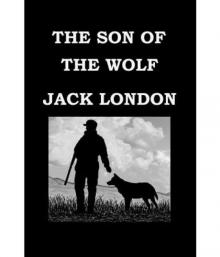 The Son of the Wolf
The Son of the Wolf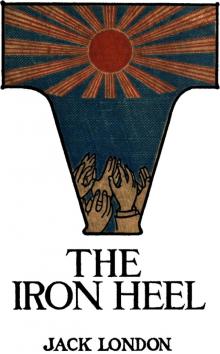 The Iron Heel
The Iron Heel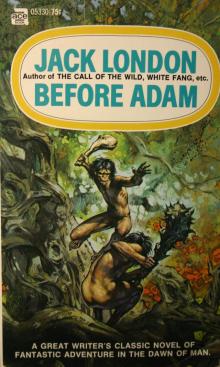 Before Adam
Before Adam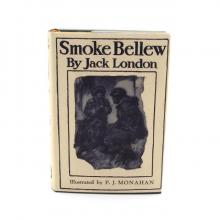 Smoke Bellew
Smoke Bellew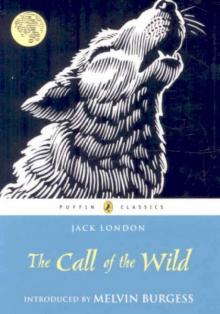 The Call of the Wild
The Call of the Wild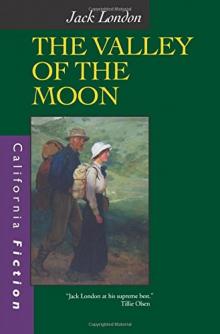 The Valley of the Moon Jack London
The Valley of the Moon Jack London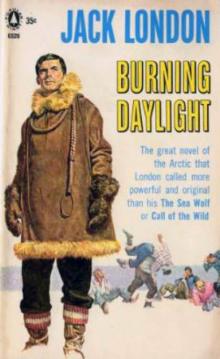 Burning Daylight
Burning Daylight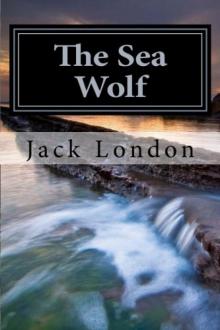 The Sea Wolf
The Sea Wolf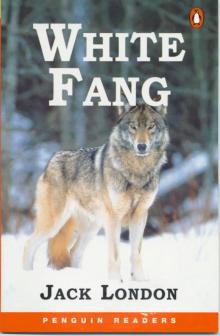 White Fang
White Fang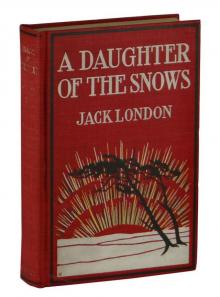 A Daughter of the Snows
A Daughter of the Snows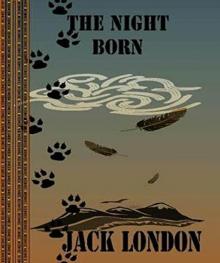 The Night-Born
The Night-Born A Son Of The Sun
A Son Of The Sun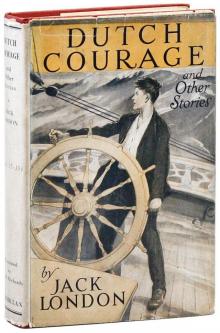 Dutch Courage and Other Stories
Dutch Courage and Other Stories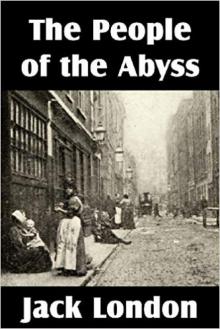 The People of the Abyss
The People of the Abyss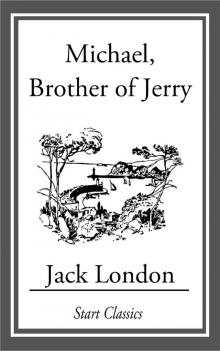 Michael, Brother of Jerry
Michael, Brother of Jerry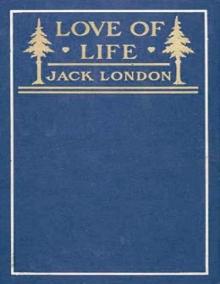 Love of Life, and Other Stories
Love of Life, and Other Stories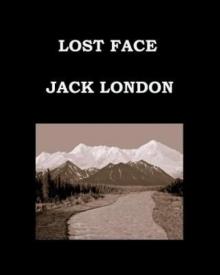 Lost Face
Lost Face The Road
The Road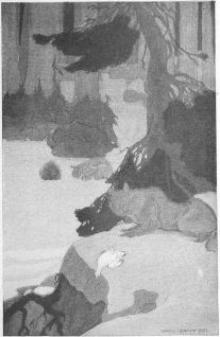 Love of Life
Love of Life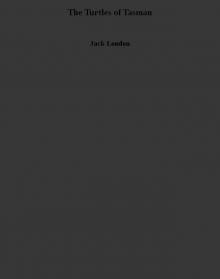 The Turtles of Tasman
The Turtles of Tasman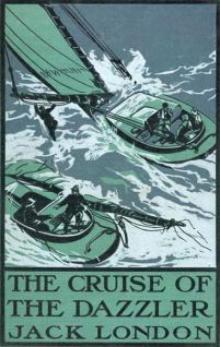 The Cruise of The Dazzler
The Cruise of The Dazzler The Heathen
The Heathen The Scab
The Scab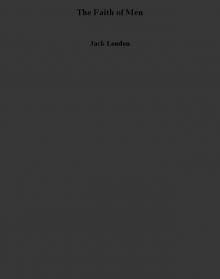 The Faith of Men
The Faith of Men Adventure
Adventure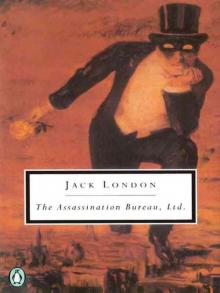 The Assassination Bureau, Ltd.
The Assassination Bureau, Ltd.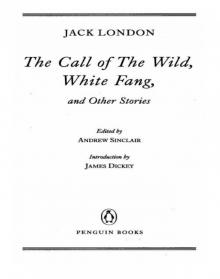 The Call of the Wild, White Fang, and Other Stories
The Call of the Wild, White Fang, and Other Stories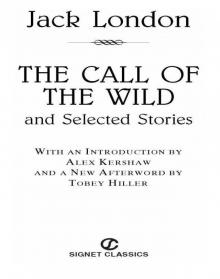 The Call of the Wild and Selected Stories
The Call of the Wild and Selected Stories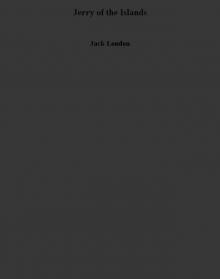 Jerry of the Islands
Jerry of the Islands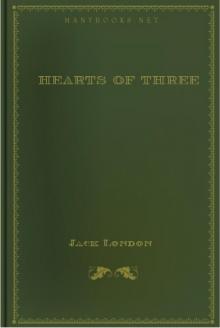 Hearts of Three
Hearts of Three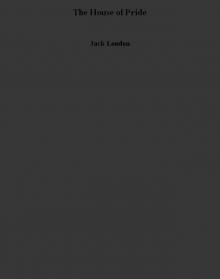 The House of Pride
The House of Pride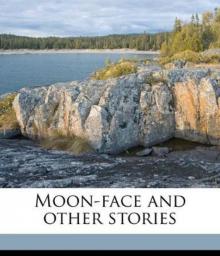 Moon-Face and Other Stories
Moon-Face and Other Stories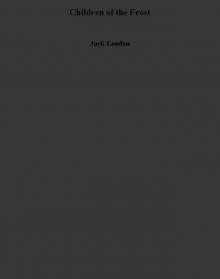 Children of the Frost
Children of the Frost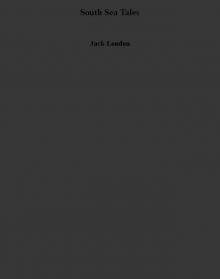 South Sea Tales
South Sea Tales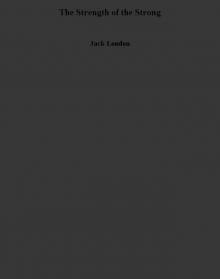 The Strength of the Strong
The Strength of the Strong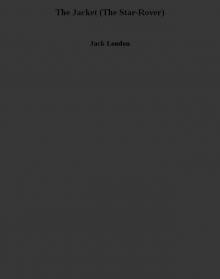 The Jacket (The Star-Rover)
The Jacket (The Star-Rover)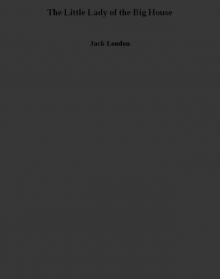 The Little Lady of the Big House
The Little Lady of the Big House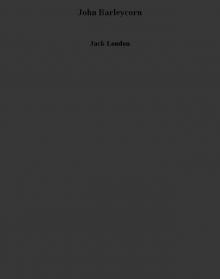 John Barleycorn
John Barleycorn ADaugter of Snows
ADaugter of Snows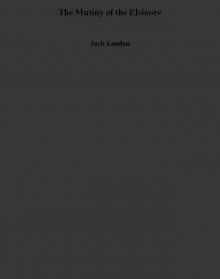 The Mutiny of the Elsinore
The Mutiny of the Elsinore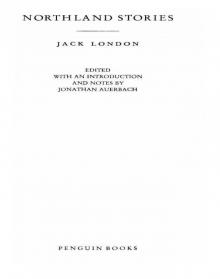 Northland Stories
Northland Stories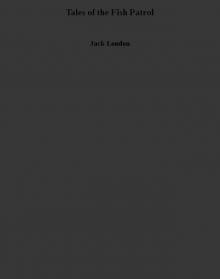 Tales of the Fish Patrol
Tales of the Fish Patrol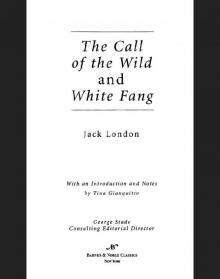 Call of the Wild and White Fang (Barnes & Noble Classics Series)
Call of the Wild and White Fang (Barnes & Noble Classics Series)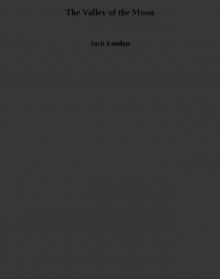 The Valley of the Moon
The Valley of the Moon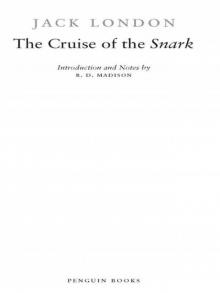 The Cruise of the Snark
The Cruise of the Snark The Game
The Game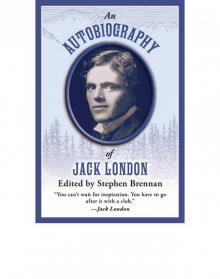 An Autobiography of Jack London
An Autobiography of Jack London